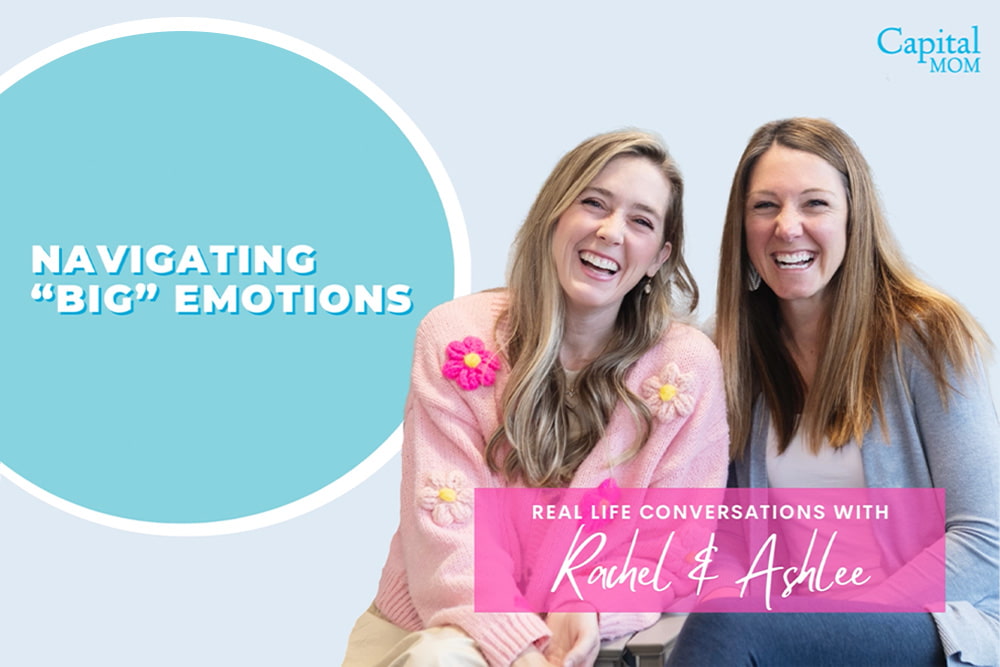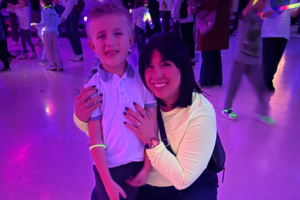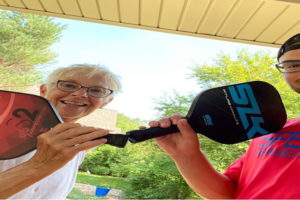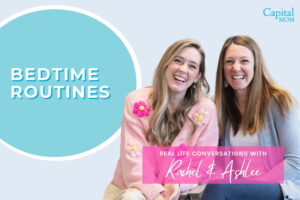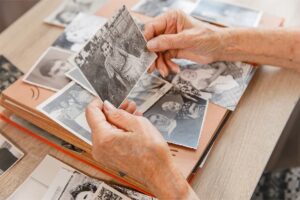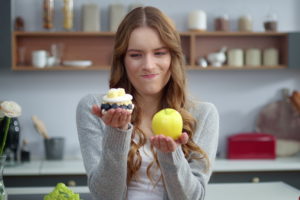Hi everyone! Welcome to those joining us for the first time, and welcome back to those who are returning! In our last episode, we got to know each other a bit better and talked about friendships in motherhood. Today, we’re excited to dive a little deeper into some new content.
Our Monthly Glimmers & Dimmers
Just like last time, we’re going to start with a glimmer and a dimmer from each of us.
Ashlee’s Recent Glimmer
I was in the car the other day and my daughter is really excited and motivated when she has her screen time. We try to have limits, but she wanted to use her Switch, which is something we got her for Christmas. And we have some limits already set. But she was asking me, even though we’ve already set our limits, and I got a little frustrated in the car.
I said, “Hey, we already have these limits. When you ask me and I have to say no and no and no, I feel like I’m a bad mom. I don’t like to feel that way.” She was quiet for a little bit. And then a few minutes later, she said, “Mom, you are not a bad mom.”
It melted my heart. She just had such a sweet, mature conversation with me after that about how sorry she was that I pushed. It really made me feel like the things that I’m trying to do—using our words and communicating—is helping.
Rachel’s Recent Dimmer
Mine is a completely different feel than Ashlee’s. It’s one of those dimmers that you look back on and it’s kind of a glimmer because it’s so funny.
It happened right after we recorded our first episode and after a huge snowstorm. I’m at the park with my three kids, my dog Penny, and one of Ashlee’s kids, Anna, after school. Everybody was so excited because it was the first warm day in a long time.
When we got to the park, we saw that there were giant puddles everywhere because the snow had just started to melt. I had the thought of taking everyone to another park—one that might be less muddy—but we were already there. The kids started playing on the merry-go-round. I’m pushing them faster and faster and everything is fine. Until Finley, my one-year-old, wants to get on the merry-go-round with them. They start getting a little too fast on the merry-go-round, so I swoop in to save Finley, but my foot gets caught.
I fall backwards into a giant puddle holding Finley in my arms. She did not get hurt or wet. But I did. My entire legs and back were soaked. I stayed still in the puddle for a long time. After I got up, other moms from across the park started cheering me on. I could have been really mad at the situation, but having those other moms make it fun and cheer with me turned this into a really awesome celebratory moment.
When we got back to the car, Ashlee met us there to pick up Anna. And my dog, Penny, had also gotten in the mud. So I’m cold, wet and at my last straw, just scrambling to clean her paws and keep my new car clean. Fortunately, Ashlee saved me with a water bottle that she dumped on Penny’s paws.
So, yes, the kids and dog got muddy, but they had a blast. And I reacted in the way that made it fun. It was the perfect moment of moms supporting moms.
How to Handle Big Emotions in Kids & Moms
We wanted to talk about big emotions in our kids, but also in ourselves. We’ll share what we continue to learn as we’re navigating motherhood and emotions with our kids. We’re trying to be emotionally healthy for them and help them continue to develop emotionally healthy skills. Finally, we’ll share advice on how to keep our emotions in check. We’ll look for ways to respond rather than react to our children when they have those big emotions.
We also understand that we are not perfect. We’re all humans. So there are going to be times when we do react. What do we do then? We’ll prove that repairing is a valuable tools that helps heal both us and our kiddos.
Techniques for Managing Big Emotions
Let’s get into the nitty gritty.
Rachel: Pausing Before Reacting
This is my biggest tool to remember. Reacting is the immediate feeling of being triggered and acting on that trigger. As opposed to breathing, taking a moment and realizing it’s not an emergency.
I have a word of the year, which I haven’t done before. It’s “breathe” for this exact reason. I’m having big emotions with my second child, who is four. This is the age when they’re experiencing independence for the first time. He wants to do things by himself now. That’s when those big emotions happen. He doesn’t have the emotional intelligence yet to know that his words cause reactions in other people. He’s experimenting with how emotions feel in his body. Having “breathe” as my word of the year helps center me in those moments.
Ashlee: Giving Time During Transitions
If I’m feeling rushed and haven’t given myself time to do the things that I need to do prior to leaving, I’ll react instead of respond. Transitions are such difficult times for my family. I can lose my cool so easily then. For example, my kids often don’t want to go when I’m ready to go. When big emotions happen, I usually haven’t done the steps to give us time.
What’s worse is that it makes it even longer than if I had paused and tried to just relate with where my children are. Developmentally, they’re in a perfectly normal emotional state for their age. A pause can be so effective for those situations. It might be getting down on their level and saying, “Hey, I know you don’t want to leave right now, but this is what we’re doing.” Meeting your kids in the eye is huge.
Rachel: Recognizing Your Ultimate Power as a Parent
I saw a quote from Dr. Siggie on Instagram recently. She gives phenomenal parenting tips. She’s an older woman, which got me thinking about how in thirty years from now, these big emotions are going to seem so insignificant. But as we’re treading them, they’re big in our life. They matter to us. They impact our day-to-day. We’re probably sleep-deprived and stressed. Maybe we’re dealing with our own issues. But imagining myself looking off a balcony from far away at these moments helps me have a better response. That way, I don’t have tunnel vision.
Anyway, Dr. Siggie said, “Your ultimate power is your calmness. Yelling is not power. It is losing control of your own emotions. Giving in is not power. It is your child’s behavior controlling your actions. Punishment is not power. It’s feeling frustrated, overwhelmed and unsure how else to guide your child. Your ultimate power as a parent is your calm—the ability to stay focused, regulated and in charge in the face of your child’s emotions and outbursts.”
Rachel & Ashlee: Viewing Emotions as Temporary Waves
I read in a parenting book one time that emotions are temporary. You’re going to feel them. They feel really big in the moment, but emotions pass. They’re like waves. All you have to do is get through the big wave and come out the other side to feel better.
Regulating Big Emotions in Public
How do you regulate big emotions in your children in public situations? This can get a lot of parents on edge because there are people around and they’re watching. It can make you feel even more frazzled. You just want it to stop. So what do you do?
Ashlee: Avoid Self-Judgment
The biggest thing is realizing that when my kids have an outburst in public, I judge myself. If my kid has an outburst, I have choices, though. One is that I can start judging myself and feel embarrassed about my kid’s actions. Where have I gone wrong? What have I done? Why is my kid acting like this? That’s going to make the situation much worse. It’s adding another big emotion to a big emotion. It’s looking inward at me instead of outward at my child.
The other choice is to pause and break away from judging myself. It’s saying that my kiddo is having a hard time in this moment and that has nothing to do with me and my parenting. I usually go down to my kid’s level and figure out what they’re sad or upset about. I try to show them that I see them. I show that their emotions matter—that feelings are normal.
Ashlee: Block Out the Noise
I also block out other people that might be looking at me. I put blinders on because ultimately it’s the relationship between you and your child that matters. None of those strangers are part of your family unit. Your child is what’s important at that moment. You’ll get different responses to this approach. Some will be embarrassed for you. Other moms will validate you, which means the world.
Ashlee: Slow Down
Again, if I’m feeling rushed, I’m going to feel like I don’t have time to deal with my child’s emotions. But I always have time. In the grand scheme of things, if we’re five minutes late to practice so that my oldest can finish drawing her picture, it doesn’t matter. If I was being rushed while working on something important, I’d have big emotions too. They see me telling them to wait when I’m doing laundry. They’re simply trying to mirror that behavior but don’t always have the words. So, instead, I slow down, set a two-minute timer and give my kids a heads up that that’s how long they have before we need to go.
Ashlee: Respond Differently to Each Child
Both of us have three kids. They respond differently to big emotions, so I have to respond differently, too. My oldest daughter will read as her way to calm down. Afterwards, she’s usually ready to have a conversation with me. With my second, I’m in the process of understanding what helps her best. I can let my emotions feel big when I see hers feeling really big. I’m working on that. She usually needs space to draw and relax. Fortunately, all of my kids are great with their words.
Ashlee: Provide Space
If your kid is disregulated and you’re trying to have a conversation with them, they can’t hear you at all. I find that giving them space and time is the common denominator.
How to Regulate Your Emotions as the Parent
I think most moms have a similar list of things they do to stay calm, but mine are:
- Going outside
- Singing a song
- Dancing to music
- Getting in the bath—or adding water to any situation
- Eating a snack
All of these totally change the moment. Your kids think it’s a silly, fun game that gets everyone laughing instead of upset. I also remind myself in these moments that our children are not objects to be perfected. They are human beings to have relationships with. So, when I stop feeling like I have to form them into perfect little people to go into the world, it takes the pressure off. I’m just here to learn about you, support you, listen to you and hear what you like and don’t like.
It also helps to remember that every day is a new day. I’ve never parented a nine, seven, and three-year-old—these particular children—on this particular day before. Give yourself grace.
How to Repair After Reactions
Sometimes, you react instead of responding. We’re going to mess up. In the heat of the moment, it can be impossible to name the emotion you’re feeling and explain why. So what do you do?
Before you talk about what happened with your kids, make sure they’re calm. Spend time with them. Set aside about ten minutes of non-rushed time in your schedule. Have it be the last thing you talk about that day. While they’re in bed, say, “Hey, remember when this happened today? I’d like to talk about it.”
An apology is a great start. But the mistake some parents make is “I’m sorry because you…” or “I was mad because you…” That’s not an apology. Instead, a real apology doesn’t place blame. It’s “I’m sorry. I was upset. I responded or handled that in a way that I didn’t like. Can we try again?”
The cool thing about this approach is that it rewires the brain. My kids and I will role-play the situation, where we pretend to do things differently. I’ll say, “When you said this, instead of me saying this, here’s what I would have said instead. Do you like that better?” They’ll usually say yes, and we’ll have a connecting moment that they can think about later and feel better about than my first reaction.
Every time I do this, we walk away stronger. It doesn’t feel like I’m stuck in that mistake. I can correct it. It teaches my kids that they can correct theirs, too. We can both be better. Dr. Becky is another parenting expert that I love. Her book, No Bad Kids, is all about how there are kids (and adults) who make mistakes, but they’re not entirely bad because of them.
It’s in moments of repair that our kids take our breath away. They’re so loving, full of care, mature and good. That pureness and their potential to be great humans heals us. They continue to fill our cups back up.
You don’t need to do motherhood alone. Come join our village exactly as you are.
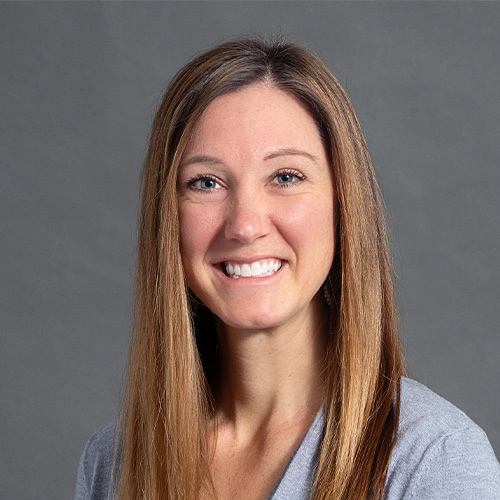
Ashlee Hendricks
Real Life Conversations Host
I am a mom to three awesome kids: Ellie, Anna, and Levi. My husband Jon works as a professor at the UNL Business College. While we are not natives to Lincoln (this year marks five years in Nebraska), I did grow up on a dairy farm in southwest Missouri and feel quite at home here. I work as a full-time mom and a part-time nurse at a clinic here in town.
As a family, we are happiest outside and having adventures. We lived in South Carolina before moving here so we’ve had to toughen up quite a bit! We love biking, camping and anything involving water. I have been supported and inspired by so many amazing women and men along my parenting journey. Rachel and I have talked a lot about our shortcomings and wins as moms. I hope as we share some of our story that you’ll find some relatable information that can nurture and inspire you wherever you are on your journey as a parent. We are all in this together!
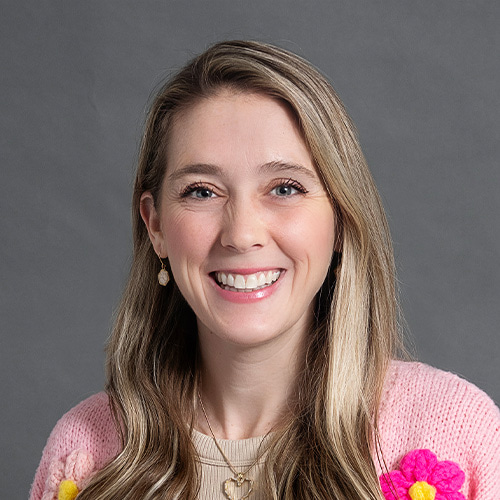
Rachel Robinson
Real Life Conversations Host
I was born and raised in Lincoln. I am a stay-at-home-mom to three amazing kids named Ellie, Brecken, and Finley. I worked as a PE teacher at Scott Middle School for 8.5 years and turned into a SAHM when my second kiddo was born. I love being home with my kids. It is so fulfilling to me to be home with them through each stage, to care for them and to be a part of the little details and the big moments in their lives.
My husband, John, is a men’s gymnastics coach at the University of Nebraska. Our kids love to go to the gym and play. We love that they now have a relationship with the college athletes. It is really fun. Go Big Red! I am very excited to be chatting about things motherhood here on CapitalMom. I hope you enjoy and are able to relate as we share our motherhood journeys.


